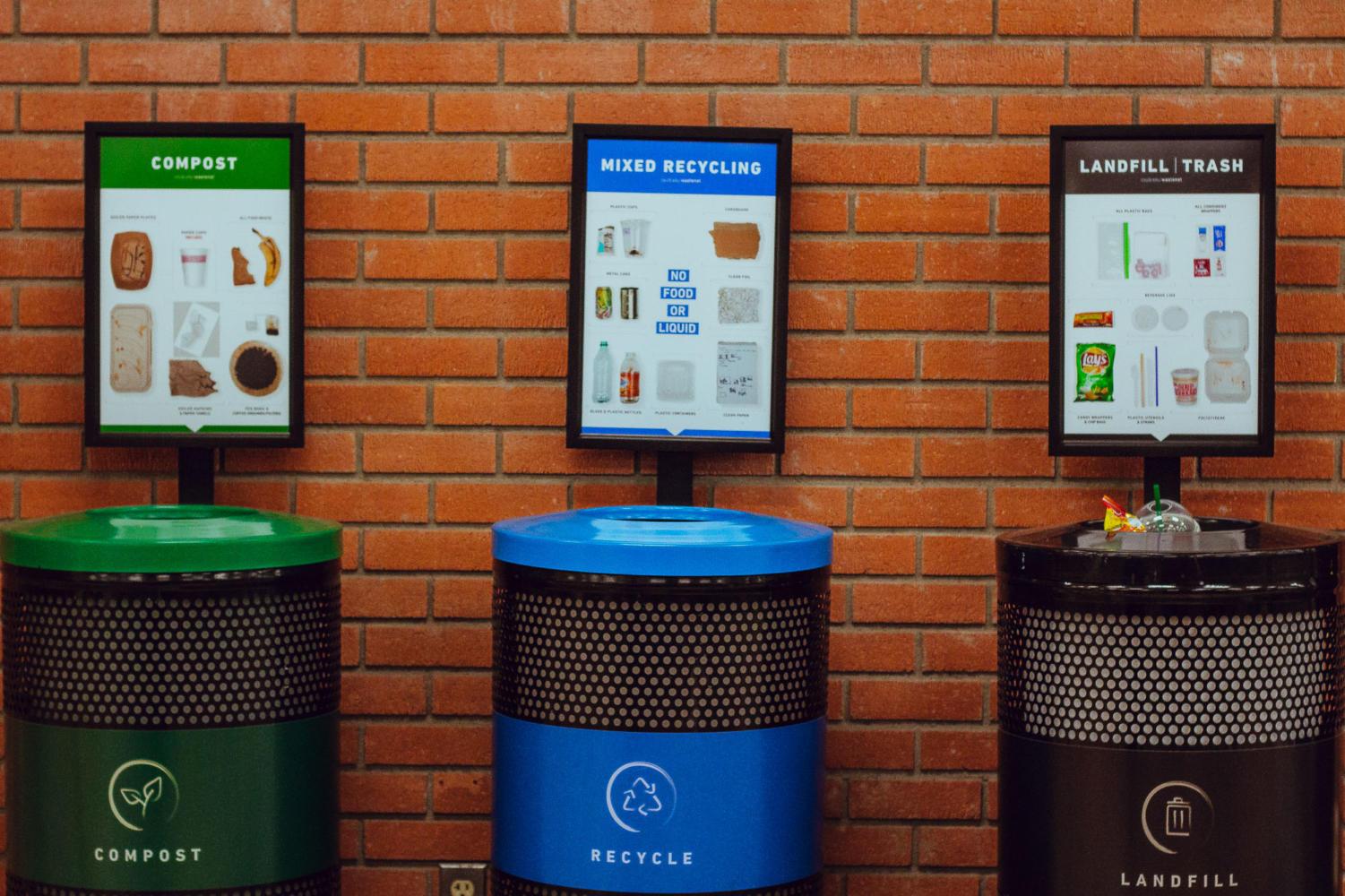In an attempt to become more eco-friendly, a new project called “Waste Not” was implemented this semester by the Office of Sustainability to achieve a goal of zero waste by 2030.
The “Zero Waste Stations,” similar to those in the University Student Union, are labeled with either “compost,” “recycle,” or “landfill” icons to help students organize their waste.
However, the project is already facing a few challenges that must be resolved if it is to continue. Part of the problem is confusion among students who have been unintentionally sorting waste in the wrong bin. Even students who try to sort their trash properly are confused about which bin they should use.
“Sometimes I would dispose of my trash in the wrong bin unintentionally,” said senior english major Soun Oeng. “The pictures do help, but I do think it can be kind of overwhelming, because there’s a lot of information to inform you how to throw away your trash.”
Though waste hauler company Athens and compost facility American Organics haven’t actually mentioned cutting off their partnership with the university, sustainability coordinator Holli Fajack still expressed her concern.
Fajack said that if Athens takes a bag of waste to American Organics only to be told that it’s non-compostable, the companies may decide that doing business with the university is more trouble than it’s worth.
The issue that the Office of Sustainability is facing is the fine line between providing too much sorting instruction on the Zero Waste Stations and not enough.
Veronica Salcido, a sophomore marketing major, thinks that the bins are labeled clearly, but it takes more effort to separate waste correctly.
“I think if they expand [the Zero Waste Stations] to the entire campus, it will force people to take the few extra seconds,” Salcido said. “Once it becomes normal, people won’t even think about it and it won’t be as much of a hassle.”
Senior film major Erika Jenkins would like to see an educational course. She believes that if students understood how to organize their waste on campus, it would leave a positive impact on Long Beach.
“If you’ve been to the beach, then you know that it’s really bad out there,” Jenkins said.
Long Beach isn’t the only California State University working toward zero waste.
In the 2014 CSU Sustainability Report, a policy was announced requiring campuses to strive for an 80 percent decrease in waste by 2020, but achieving zero waste is a task that several campuses in the university system have yet to set a deadline for.
Cal State Los Angeles has its own program, but aims to move to zero waste by 2036.
Other campuses such as Northridge, Channel Islands and Monterey Bay are working toward reducing waste, but not necessarily eliminating it entirely.
The waste stations will branch out to the rest of campus over a three-year period. Until then, the Office of Sustainability is monitoring the usage of the bins to figure out how to make the program run most effectively.
Students can reduce, reuse and recycle, but according to Fajack, it’s more important that they learn how to rethink what they should and should not be consuming.





great reporting!